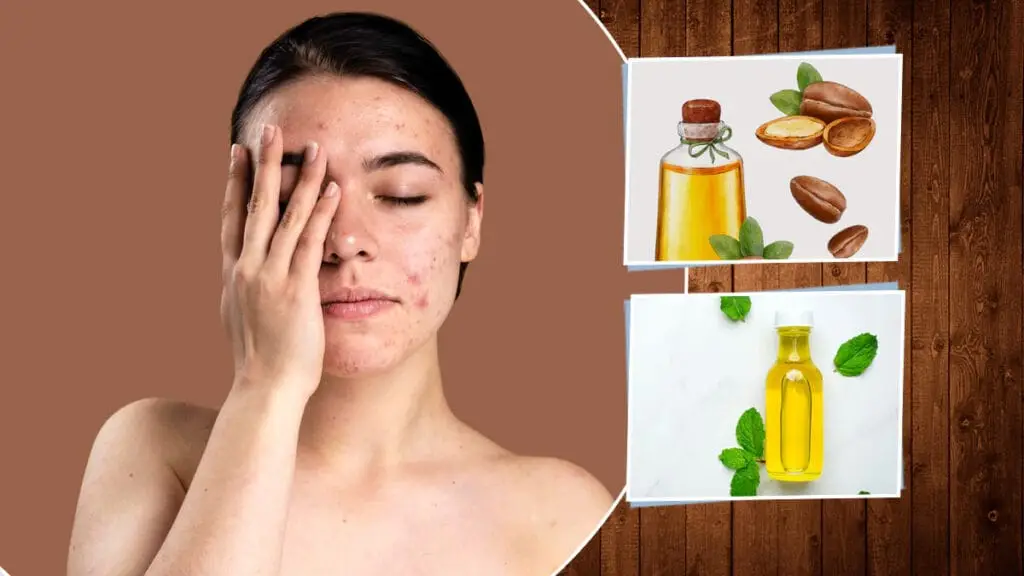Daily Habits That Promote Oil Control and Prevent Acne
The discovery of daily routines helps decrease oil production and prevents acne formation and appearance. The website provides specialized skincare guidance on daily routines along with recommendations for products while explaining oil maintenance strategies for daily use.

Introduction
The challenge of coping with oily skin and acne extends continuously. The mixture of shining T-zone and clogged pores and unexpected outbreaks can severely affect your self-confidence. Your daily routine contains simple modifications which produce major changes that improve your overall condition.
The key to obtaining oil-free skin requires both correct product selection and daily routine modification to reduce oil and stop pimples from forming. This guide contains solutions which actually work for anyone seeking effective methods.
This piece will present the essential practices for skincare care along with product selection guidance and it will answer frequently asked questions regarding acne-prone skin management.
Why is Oil Control Important?
One of the main factors that create acne is an abundance of oil produced by the skin. The natural production of skin oil helps your skin stay hydrated yet excessive levels can trigger pore clogs that allow dirt and bacteria to become trapped and result in acne breakouts. Proper skin oil management stands essential for controlling acne outbreaks.
A proper skincare routine helps you control oil production to decrease shine together with the achievement of a glowing but oil-free finish.
7 Daily Habits That Help Reduce Oil and Prevent Acne
1. Start with the Right Cleanser
Choosing the perfect cleanser is essential for managing oily skin. Opt for a gentle, oil-free, and non-comedogenic cleanser that targets dirt and excess oil without stripping your skin of moisture. Look for ingredients like salicylic acid or benzoyl peroxide to fight breakouts effectively.
- Morning: Use a foaming or gel-based cleanser to remove overnight oil buildup.
- Evening: Wash your face after a long day to cleanse away dirt, sweat, and makeup.
Avoid Harsh Cleansers: Overly drying products can trigger your skin to produce even more oil.
2. Hydrate with a Lightweight Moisturizer
Many people believe improperly that those with oily skin should avoid moisturizing their face. The truth? Hydration is crucial! When you skip moisturizer your skin intensifies sebum production as an automatic response to compensate.
Select a non-greasy moisturizer in gel form suitable for individuals with oily skin and acne control needs. Hyaluronic acid remains a valuable ingredient since it provides moisture while avoiding pore blockage.
3. Incorporate an Oil-Free Sunscreen
Sunscreen is a must-have for any skincare routine, even if you have oily skin. Many fear sunscreen will add to the shine, but oil-free options work wonders.
- Use a broad-spectrum sunscreen with at least SPF 30.
- Opt for mineral sunscreens with zinc oxide or titanium dioxide for a matte finish.
This step not only protects you from harmful UV rays but also prevents acne scars from darkening due to sun exposure.
4. Exfoliate Weekly
Regular exfoliation is essential for unclogging pores and controlling oil buildup. Use a chemical exfoliant containing AHA (alpha hydroxy acid) or BHA (beta hydroxy acid) to remove dead skin cells.
- Frequency: 1–2 times a week for oily skin.
- Tip: Avoid harsh scrubs that can irritate and worsen acne.
5. Avoid Touching Your Face
The urge to place your chin on your hands or touch your face produces bacteria transfer and oil exchange which results in acne formation. Your mobile phone screen must be routinely disinfected while maintaining hand-free contact with your face.
6. Use Blotting Papers During the Day
Instead of washing your face multiple times (which can strip skin), use blotting papers to soak up excess oil mid-day. They’re portable, quick, and won’t disrupt your makeup or skincare products.
7. Stick to a Consistent Night Routine
Before bed, double cleanse (if you wore makeup) and follow up with a targeted treatment, such as a lightweight retinol or serum with niacinamide. These ingredients help reduce oil production while targeting acne and balancing your skin’s texture.
Want more tips? Check our complete oil control guide for in-depth advice!
Common Mistakes to Avoid
- Skipping Moisturizer or Sunscreen
Both steps are crucial, even for oily skin. - Washing Too Often
Over-washing can dry out your skin, prompting it to produce even more oil. Stick to cleansing only twice a day. - Using Too Many Products at Once
Overloading your skin with multiple treatments can irritate it, leading to redness and more breakouts. Keep it simple!
Looking for more natural approaches? Home remedies for oily skin might also help you manage shine effectively.

Buyer’s Guide for Oil Control Products
When shopping for skincare products, keep these tips in mind to support clear, oil-free skin.
- Choose Non-Comedogenic Products: These won’t clog your pores, reducing the likelihood of acne.
- Look for Oil-Absorbing Ingredients: Clay, charcoal, and salicylic acid are great for removing excess sebum.
- Avoid Fragrances: Scented products can irritate sensitive, acne-prone skin.
- Trust Reviews: Read feedback from users with similar skin types to find the best match.
Pro Tip: Investing in high-quality products may save your skin in the long run. Best products for acne-prone skin are often worth the splurge.
FAQs About Oil Control and Acne
1. What foods help reduce oil on the face?
The skin benefits from nutrient-rich food sources that contain Omega-3 along with antioxidant vegetables such as walnuts and salmon. You should stay away from foods containing sugar or processing because they lead to excessive oil discharge.
2. Can washing too often cause more oil?
Yes. Over-washing strips your skin of its natural oils, causing it to overcompensate by producing more sebum.
3. What ingredients are good for oil control?
Look for active components like salicylic acid, niacinamide, clay, and tea tree oil. These help regulate oil and keep pores clear.
4. Is it okay to wear makeup if I have oily skin?
Yes, but choose non-comedogenic, oil-free foundations, and always remove makeup thoroughly at the end of the day.
5. Can hydration reduce oily skin?
Absolutely. The hydration of skin reduces sebum production making it less likely to overproduce sebum. You should choose oil-free hydrating products which are lightweight for your skin care routine.
Call to Action
Caring for oil control and fighting acne problems requires no need for panic. The essential daily habits for controlling oil on your face will lead you to a balanced complexion with healthy skin. Making little adjustments between selecting your cleanser and sunscreen application will deliver significant changes in your complexion maintenance throughout time.
